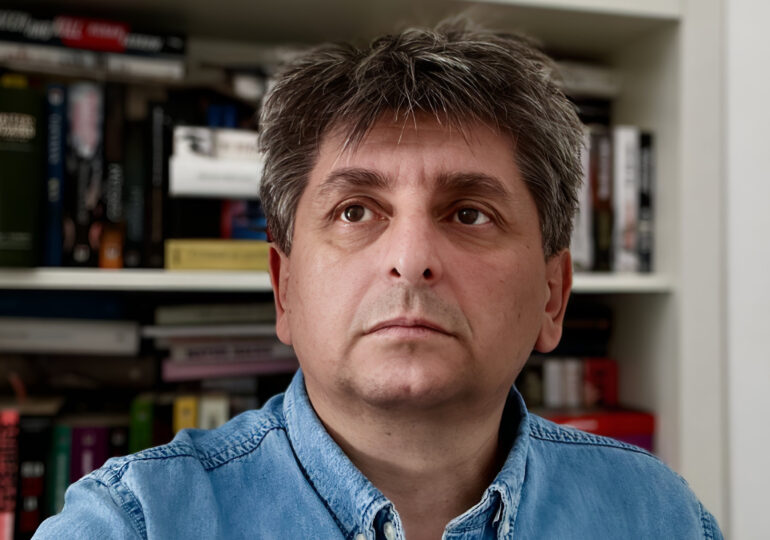It took dozens of lost battles, public humiliations, national and international, compromising the electoral process for the political elite to acknowledge and internalize the fact that Romania was defeated in the confrontation with Russia.
After 1990, the FSN doctrinaires, heirs of the Communist Party, needed a strong message to maintain national cohesion among a population brutalized by totalitarianism, sick, and poor.
In Romania’s vicinity, Yugoslavia was falling apart, confrontations between communities, nationalist and religious groups had become violent. Dozens of people were dying. Tensions caused destruction, migration, and terror.
The collapse of communism led to the reactivation of various frustrations, as well as the questioning of state systems. Such movements appeared not only in former Yugoslavia. Czechoslovakia disintegrated throughout 1992, forming two separate states, and in the USSR, the former republics declared their independence, with the disintegration of the Soviet Union taking place in August 1991.
Romania was not spared from conflicts; in March 1990, tensions and violence in Târgu Mureș between Hungarians and Romanians came very close to leading to a large-scale conflict.
The political solution for preserving national unity, threatened by the dynamics of changes in Europe after the collapse of communism, was, at that time, aggressive nationalism.
Ion Iliescu, Silviu Brucan, Alexandru Bârlădeanu, and other leaders from the new power circle established after Ceaușescu's removal chose to push nationalism for maintaining social cohesion. What else could unite a population disoriented by the brutal change of a political system? A new phantom was needed to replace the Golden Age of communism.
Thus, Iliescu and his associates encouraged the emergence of nationalist organizations and parties, dozens of radical publications with strong anti-Hungarian, anti-Semitic, and racist messages, the most important being "România Mare" led by Eugen Barbu and Vadim Tudor, "Europa," "Românul," "Dimineața," among others.

Political extremism was encouraged by Romania's leadership for over a decade, under this dome gathering former communist leaders, people who worked in the old system, and nostalgic for the old regime.
As Russia began to recover after the shock of the USSR's collapse, and a political current of regaining old influences emerged in Moscow, both over the former Soviet republics that had become independent and over Eastern Europe, the Kremlin's people rebuilt connections with those in the nationalist-radical zone, known from the communist era.
Russia was too weak, Romania had embarked on a different path, and no one in Bucharest considered Moscow a major threat. Joining NATO in 2004, followed by EU accession three years later, meant a complete, irreversible departure from Russia's influence, the issue being closed. At least that was the official message, with few exceptions, one being former president Traian Băsescu.
Rebuilding the Networks
Vladimir Putin, the new tsar who came to power at the end of 1999, had other thoughts. Initially, he had no resources, Russia's economy being in shambles. The country was ruled by a handful of oligarchs who had seized resources, companies, and the entire administration.
Immediately after consolidating his power by taking control of the moguls, Putin began to dream of a new empire.
The fact that President Nicușor Dan acknowledges that for over a decade, Romania has been a target for Russia is unprecedented. No significant political leader had spoken about this before.
Not only have Kremlin representatives managed to rebuild old influence networks, using former political leaders and public figures such as Adrian Năstase, Adrian Severin, Cozmin Gușă, Ion Cristoiu, Roșca Stănescu, and many others, but they have also managed to create an important political movement after successive attempts, which today shapes public discourse and continuously threatens Romania's political, economic, and social stability.
To the grim landscape are added infiltrations from intelligence agencies, justice, public institutions, and companies, thus portraying a state system thrown into disarray by Russia's hostile actions, with little to no consistent reactions from Romania. There wouldn't even be anyone to react.
Who Fights an Nonexistent Threat?
Kremlin's victorious strategy was to spread, at the level of intelligence services and then at the level of political decision-makers, the idea that the population needed to be frequently reassured, avoiding speeches that present reality to prevent causing fear, so that at the general public level, Russia's threat is not perceived as concrete, real, palpable, but as undefined, distant, shapeless, and inconsequential.

Russia's networks, deeply infiltrated into institutions in Romania, promoted the idea that nothing could happen to our country because it is a member of NATO and the EU. Over the past ten years, this has been the dominant message coming from political decision-makers to society, from the level of president, ministers, downwards, and up to intelligence agency chiefs, with Russia's threat being minimized and marginalized, removed from public debates.
The Kremlin managed to spread the message to such a high level that it paralyzed any institutional action against Russia. Who in their right mind would start fighting a nonexistent threat, as political leaders announced whenever they had the opportunity?
A Shocking Report
If you analyze the events around November 24 that ultimately led to the last-minute cancellation of the elections, you will notice a total institutional paralysis, both at the level of intelligence services and at the level of BEC, AEP, ANCOM, CNA, government, and president.
A large part of the public saw that something was happening, but no one reacted because the general idea was that everything was fine, there was no danger.
On November 12, at the Parliamentary Committee for SRI Control, a report from the agency arrived, informing the deputies and senators that there was no danger, no Russian interference in the electoral process.
"Following the notification of the Control and Supervision Committee on the SRI activity regarding the allegations in the public space regarding the presence on Romanian territory of state or non-state entities that could affect/influence the democratic process of presidential and parliamentary elections, given the Committee's request to the SRI and the Service's response to the Committee, I wish to make the following clarifications: so far, no specific content elements specific to propaganda campaigns or disinformation orchestrated by hostile external actors against Romania have been identified," announced Ioan Chirteș, PNL senator at the time, head of the parliamentary committee.
Just ten months later, the new president officially announces that our country is a target of the hybrid war waged by Russia, not just yesterday or today, but for a decade.
Only from this contradiction can one observe how serious the situation is and how defenseless Romania is. Even today, there are officials who spread the message of anesthetizing the population that nothing bad can happen because we are in NATO and the EU.
Under the shadow of this message, a network of parties infiltrated with Russia's influence agents has developed, a guru of Moscow has risen, protected for a long time by individuals from national intelligence services, and undisturbed, dozens of groups act that undermine democracy and the rule of law, waiting for the opportune moment to seize power through election theft or by force to bow again to the great master from the east.

